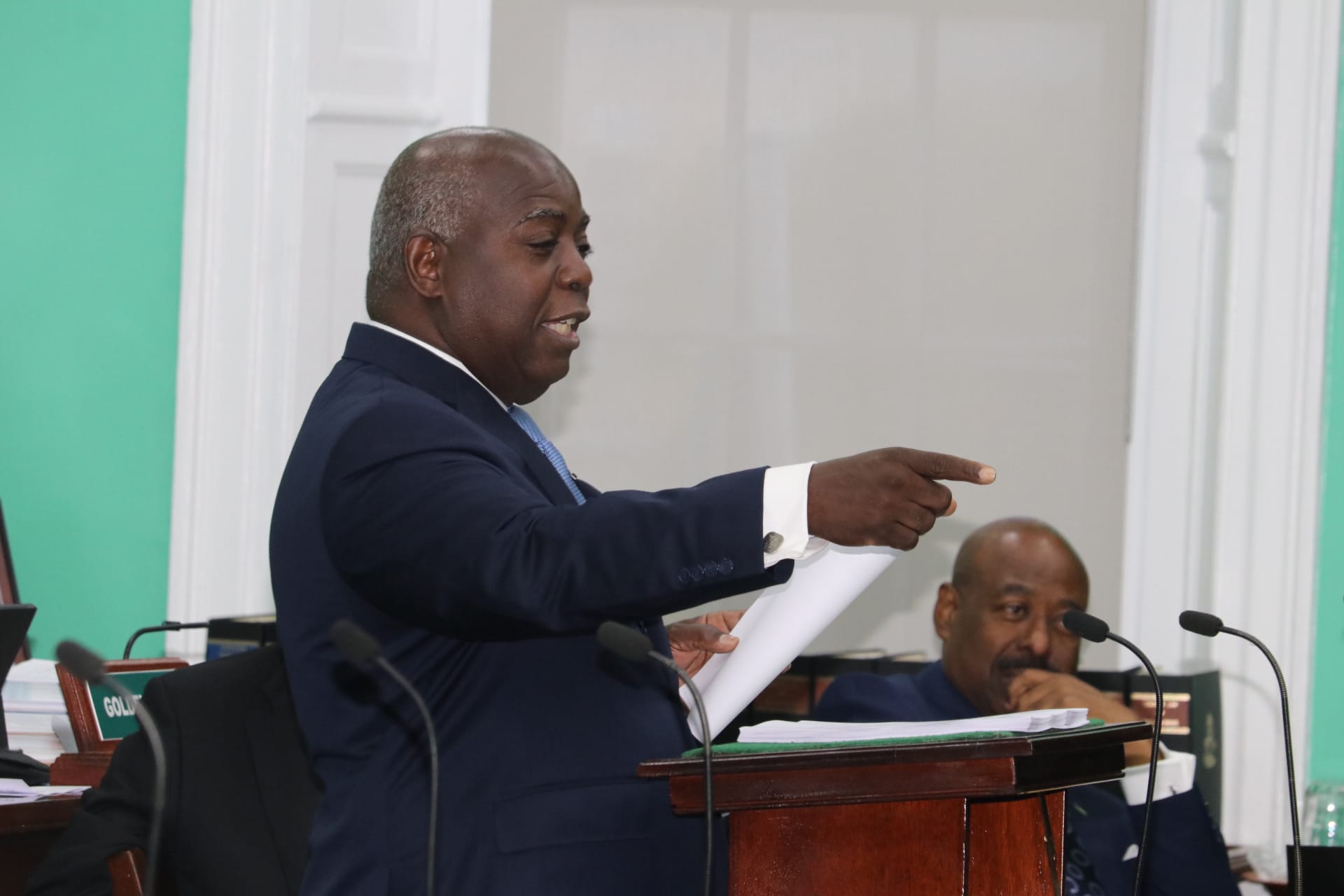NASSAU, BAHAMAS — Prime Minister Philip Davis yesterday defended his administration’s travel expenditure, touting recent breakthroughs that would not have been achieved from “sitting at home”.
Davis addressed the issue in the House of Assembly yesterday. He noted that the government’s travel expenditure also includes the cost of travel to Family Islands for public servants, to ensure equal access to Government services around the archipelago.
“The first quarter expenditure on travel is around 28 percent of the travel budget, marginally above the 25 percent level of the amount budgeted for the year. This is not remarkable. Some quarters will be a little higher, others a little lower but by year’s end, it should be within budget,” said Davis.
He continued: “In my budget communication earlier in the year, I highlighted the difference between money spent on investment and money which is expenditure. Fundamentally and ultimately, the test is whether we can show a return on that investment.
“Permit me to demonstrate what travel has yielded just in the past week. In September, I was invited by the New York Times Newspaper to participate in a panel in New York. The other two participants were the Head of the IMF and the Head of the World Bank. That conversation sparked widespread global discussion and is credited with a shift in the position of the World Bank. This panel was followed by a face-to-face meeting in Egypt at the start of COP27, between myself and the Head of the IMF.
“I understand from the Egyptian protocol team that they were amazed and impressed, that other countries who met with the IMF had to attend their premises. In this instance, the Head of the IMF came to us.”
Davis said that that conversation led to a ground-breaking agreement in principle for the IMF to partner with The Bahamas, to develop our blue carbon market sector, and to explore swapping debt for carbon credits.
“This has never happened before, and The Bahamas is set to be at the forefront of this innovation,” said Davis.
“This is the difference between our approach and what went before.
“We didn’t go to the IMF begging for a loan – they came to us to discuss a partnership. You don’t get this kind of agreement by sitting on a zoom call. You don’t get this kind of agreement by just sitting at home with your fingers crossed. You need to build a relationship. You need to be able to look each other in the eye and know that you can work together to achieve great things.”
Davis also pointed to yesterday’s signing of a Memorandum of Understanding with the African Exim Bank, as another opportunity that emerged from last week’s travel.
“Again, opportunities do not arise from sitting at home, hoping that some kind of magic will happen,” he said.
“You have to get up, get out, and work the hardest you possibly can in the best interests of the Bahamian people. That is what we are doing, and that is what we will continue to do. And I make no apology for it.”
Davis also noted that he has instructed a ‘tightening’ of the long-standing practice of travel reimbursement for public officials.
“In relation to travel for public officials, we have recently learned of two instances where travel was conducted for political purposes rather than official business,” he said.
“Although there has been a long-standing practice across several administrations of reimbursing such expenditure, I have instructed a tightening of this practice, so as to avoid even the appearance of impropriety. In the two cases I have mentioned, the sums of money involved were very small, but it is the principle itself which I think important to uphold,” said Davis.






